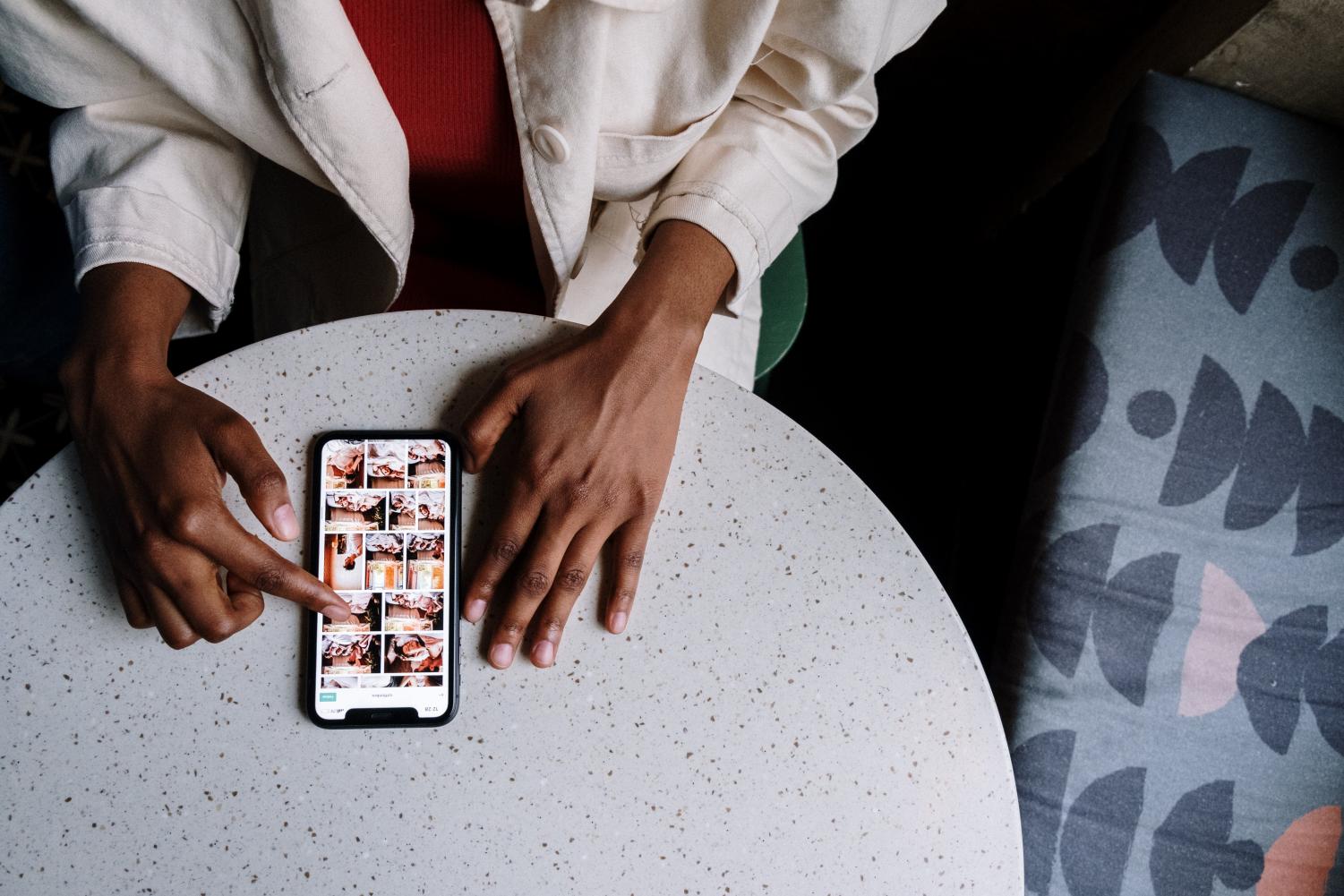Parasocial relationships: A media consumer’s guide to virtual, unrequited friendships
December 10, 2021
You have likely never heard of “parasocial relationships,” but if you have a phone, watch TV or listen to the radio you have most definitely been involved in one. The feeling of friendship media consumers develop– sometimes unconsciously– with individuals in media is known as parasocial relationships.
Parasocial relationships are one-sided and often used as tools to influence mass media audiences. Today, parasocial relationships most often take place on social media, such as TikTok, Instagram, Facebook, Twitter, etc.
Here are some tweets from fans of Taylor Swift and The Bachelor that are results of the parasocial relationships they developed from listening to Swift’s music and watching reality TV.
Influencers can use these parasocial relationships to maintain a following and benefit financially from endorsements and brand deals. Today, businesses are even hiring social media influencers to utilize the trust these content creators have already established with their audiences.
Furthermore, copywriter and media consultant, Jacinda Santora said in her article 100 Influencer Marketing Statistics For 2021 that businesses are starting to develop budgets specifically for influencer marketing content.
“Since our 2020 survey, the percentage of brands that have a separate budget for content marketing has increased by 4% to 59%,” Santora said. “A staggering 90% of respondents to our influencer marketing survey indicated that they believe influencer marketing to be effective.”
It is important to know about these relationships for two reasons. If you are a content creator, social media influencer, or any individual who needs to build a following online, knowing the power of parasocial relationships is crucial for building brand trust and credibility with your audience.
If you are a media consumer, it is important to be aware that while content online may have positive and friendly messages, individuals in media are likely profiting off of your one-sided relationship in some way. Being a conscious media consumer is always beneficial.
Zoe Roe is an influencer who makes various positive TikToks and Instagram reels encouraging women to embrace their inner “bad bitch.” She is also an influencer who encourages her followers to purchase portable curling irons using the link in her bio and automatic discount code.
As a content creator or influencer, there is absolutely nothing wrong with marketing oneself in this way. But as a media consumer, it is important to know what factors influence the messages, recommendations, or information you are receiving so you can make properly informed conclusions, purchases and opinions.
Olivia Danner, UWF senior finance major and the Kugelman Honors Council President, and I researched the parasocial tactics used by former contestants from The Bachelor on Instagram. In our study, we found 16 tactics that we believe these influencers used to maintain parasocial relationships with their followers.
At the end of our study, we created an Instagram account, parasocial_tactics, where we implemented these tactics. We created an entirely new persona using pictures we took of a volunteer.
Our volunteer contributed nothing to the captions on our posts or the format of our account.
Essentially, our “influencer” is a completely fictional character, yet our posts still reflect the same tone and language of the “typical” positive-friendly influencer.
By the end, we realized something outside of the intent of our research: While these relationships are beneficial to marketers and not necessarily harmful to audiences, they can be isolating for all involved.
“The internet was once a place to make connections with people from a wide variety of places,” Danner said.
The amount of content online increases every day. With the mass of content that is so rapidly produced, it is necessary to question the quality and authenticity of that content.
“Since monetizing these relationships that we were creating online has become so prevalent, we’ve stopped making quality connections,” Danner said, “we’ve started trying to just sell things and to just capitalize on it.”
“I think it has a lot to do with our society making sure we’re always making money and being efficient,” Danner added.
Parasocial relationships are unavoidable. There isn’t much we can do about exposing ourselves to these “one-sided friendships,” so what should we make of these relationships as people who are exposed to media every day?
An aware media consumer can recognize the need for more meaningful connections both online and offline.
Having an awareness of parasocial relationships also protects the media viewer from being taken advantage of. With awareness, a media consumer can make informed decisions on which online creators to follow and support.
For example, I love Taylor Swift. I think her lyrics are relatable, her TikToks are hilarious and her cats are adorable; however, I know she is trying to sell me her albums and merchandise by showing me her adorable cats and hilarious TikToks. It’s working, but at least I’m aware.
Parasocial relationships are not always as obvious as huge artists selling a product. Sometimes, small creators and influencers benefit from the relationship with their audience simply by including the name of a brand or product in their content.
For instance, I used to follow an Instagram influencer who shared content that sometimes featured hair care advice. While the influencer came off as very likable, I always felt slightly worse about the state of my hair and felt the urge to buy the hair care products she featured in her videos.
In these instances, it is important to reflect on the way that content affects you emotionally and physically (i.e. your spending habits) before deciding whether that content creator is worth your continued support.
A media consumer masters the parasocial– unrequited–friendship when they can recognize that media and content creators are trying to influence them.
